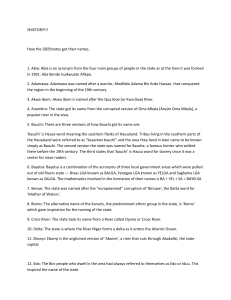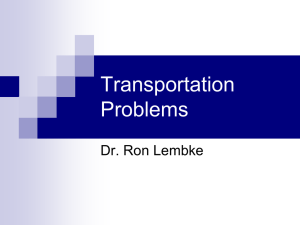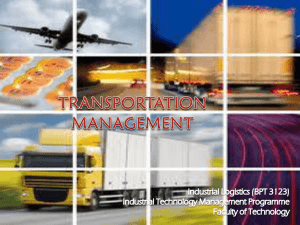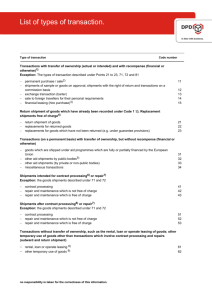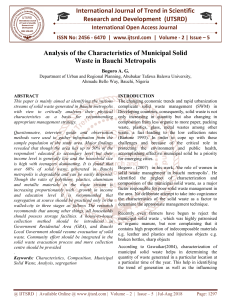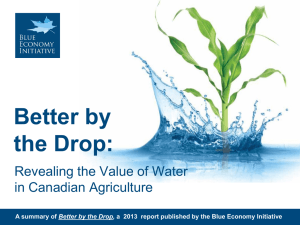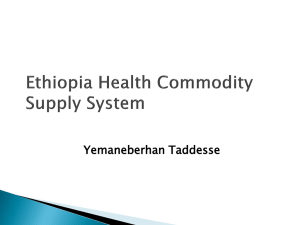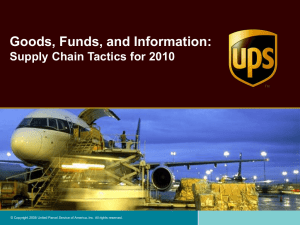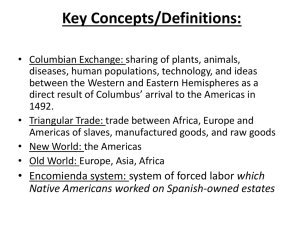A New Roadmap to Supply Chain Efficiency
advertisement
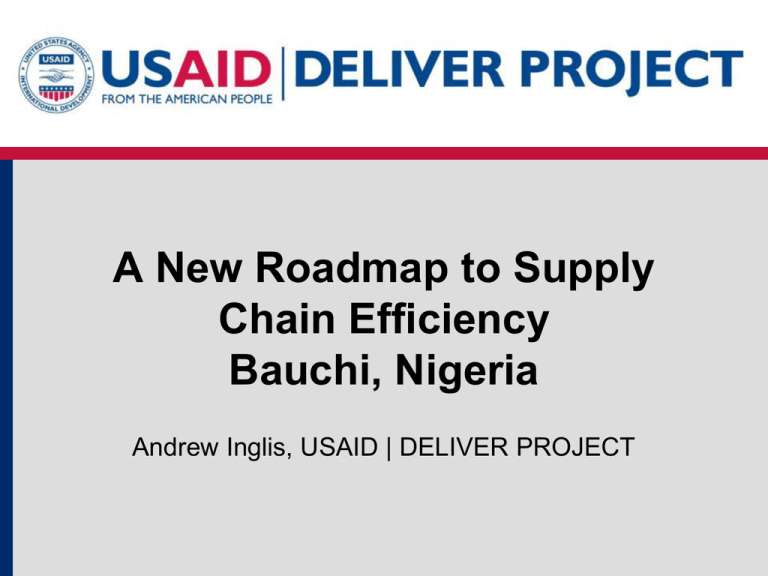
A New Roadmap to Supply Chain Efficiency Bauchi, Nigeria Andrew Inglis, USAID | DELIVER PROJECT Background: Bauchi State • Pop: 4.6 million • Contraceptive prevalence rate: 2.7 • Prevalence of malaria in children 6–59 months: 31% • Children under 5 yrs. with diarrhea: 32% Transport Optimization for Bauchi Pilot • Identify resources needed to create a pilot delivery truck logistics system • Determine the commodities and their volume going to each health facility • Obtain capacity and costs for vehicles • Prepare transportation models to determine options for effective delivery routes • Present transportation model geographically. Commodities in Bauchi Pilot • Family planning: – – – – – Microgynon Exluton/Microlut Depo-Provera Noristerat male condom. • Maternal health: – magnesium sulphate – misoprostol tabs – oxytocin. • Child health: – oral rehydration salts – zinc gluconate tabs. • Malaria: – Coartem 6×1, 6×2, 6×3, and 6×4 tabs – rapid diagnostic tests – sulfadoxinepyrimethamine tabs. Resources Needed to Optimize Transportation • • • • • • • • Master facility list Road network and conditions Commodity characteristics Shipment records Commodity forecasts Population distribution Vehicle availability and characteristics Operations schedule. Maps of Road Network and Selected Health Facilities Legend Selected Roads Bad Local Secondary Primary Graded Paved 0 30 60 Kilometers Assumptions • Shipment based on forecast • Full supply of needed commodities • Facilities characterized by services provided • Actual travel speeds on road • Bimonthly delivery. Model Constraints Scenario A B Number of trucks 4 5 5m3 5m3 Percentage of shipments routed 88% 100% Sensitivity to increase in volume N/A 300% Maximum 5 days out 70 kilometers per hour speed Truck size Scenario A: Sites Not Receiving Shipments Scenario B: All Sites Receive Shipments Feedback from the Field • Modeling provides new information and knowledge – fresh perspective on ways to use resources • Adaptability of model and risk factors require substantial sensitivity analysis. Lessons Learned • Lack of data = increased assumptions • Must generate key datasets for modeling – shipment tables • Avoid “black box magic” • Identify limitations to modeling. Benefits of Transportation Modeling • Gives decisionmakers new insight when making supply chain design decisions • Enables users to eliminate ineffective options • Enables understanding of the impact of constraints • Facilitates thoughtful needs assessment • Informs discussion on alternatives • Enables transportation thought process in new paradigm • Drives use of data for decisionmaking.
